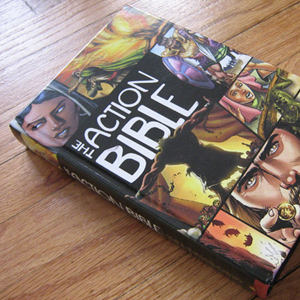"How China has changed!" reflects Mr Muo, home again after eleven years abroad, as his night train rolls through the opening pages of Dai Sijie's widely awaited second novel. Our introverted, accident-prone semi-hero heads a succession of characters whose names range from the extravagant (Volcano of the Old Moon, the Embalmer and the Old Observer of Panda Droppings among them,) to the austere, as with the vicious and venal Judge Di. The judge, in the playful scholarship that also enlivened Sijie's first and successful offering, Balzac and the Little Chinese Seamstress, 'shares his name with the fictitious Chinese detective Judge Dee, a character from the Tang Dynasty invented by the Dutch novelist Robert Van Gulik, an author also reputed for his erudition regarding the sexual habits of ancient China.'
As it is, sexual impulse, invariably comically thwarted and misdirected, proves as much a primary energy of the novel as it is the focus of Muo's professional meditations. Muo, 'the first Chinese psychoanalyst', is fresh from his training in Paris in the tradition of Freud and Lacan and is now intent on a career of interpreting the Chinese mind while avoiding the stigma of mere fortune-teller. His girlfriend (why she is called Volcano of the Old Moon remains one of the narrative's better-kept secrets) is a political prisoner, and Muo's mission of bribing Judge Di to obtain her release begets surreal and antic episodes, revealing in the process the judge's ultimate appetite, not for more money, but for a virgin. As Muo bounces from absurdity to calamity in his search for one, his own sexual innocence nicely animates the narrative.
The writing's effortlessly cinematic switches from miniature to panoramic perspectives reflect Sijie's other interest as a film director, and beneath the lavishly brocaded verbal surface there are rowdier, Mack Sennett influences at work as characters swoop on and off set, bouncing and crashing into each other, and releasing a knock-on energy that drives the story forward.
The frequent mention of Muo's spectacles reminds us that they are not only the vital link between our myopic seeker and the pressing mysteries of his ambient world, but are also the medium, lens-like, through which the story is viewed. While Muo remains, through most of the book, as much in a state of flight from the parastatal persecution personified by Judge Di as he is in pursuit of human understanding through psychoanalysis, his journey is further muddled by his poor eyesight as his spectacles are lost, retrieved, smeared and cleaned. The age-old comic conventions of misconstrued motive and mistaken identity find place in the story's construction, but Sijie also cleverly measures the gap between the I and the eye.
Failing eyesight also combines with his years of absence, a western education and his own chastity to broaden the comic emphasis, because while China may have changed, Muo remains benignly oblivious to his own transformations. Fittingly, Muo's own eventual loss of virginity involves a memorably funny, stirringly written episode.
Mr Muo's Travelling Couch represents the search for solace and serenity amid the raucous disharmony of modern China, but cheerfully dismisses any remedy in nostalgia. Episodic energy, stylistic bravura and verbal vitality lend movement and panorama to the unfolding events and a sense also of generous distances, geographic and narrative, being crossed. When Muo finally finds a virgin who consents to appease Judge Di and whose name is Little Road, the judge, in the voyaging spirit of the novel, objects:
'Not an attractive name. Today our fatherland is rich and prosperous, we don't have little roads anymore. People advance proudly on the great and sunny road of socialism. You must change your name. Judge Di will call you Great Road.'
Names, identities and time itself mutate and fade, but life's journey must go on. The retro-fervour of a line from a revolutionary opera ' 'My husband's low wages have no effect on my ideology' ' has given way to hip-hop lip-sync among the young, and Sijie seems to suggest that history is really just a continuum of the absurd.
This ingenious, lyrical and high-spirited novel reminds us that the finest, (and sometimes the funniest) writing (which Mr Muo's Travelling Couch confidently approaches) is built on human uncertainty. Not even Freud, Muo tells us, can truly comprehend a dream and 'not even artists, who are a separate race of mankind, understand the meaning of dream. They merely create them, live them, and end up as the dreams of others.'
When at the close Muo, hesitant and blurry-eyed, stands at the brink of love, this Sijie would suggest, is as good and as sure as our uncertain lives can get.

